Are you planning to use Facebook ads to promote your products or services this holiday season? Looking for a reliable process to ensure your campaigns succeed?
In this article, you'll discover five key steps to get the best possible results from your Facebook ad campaigns during peak holiday sales periods.
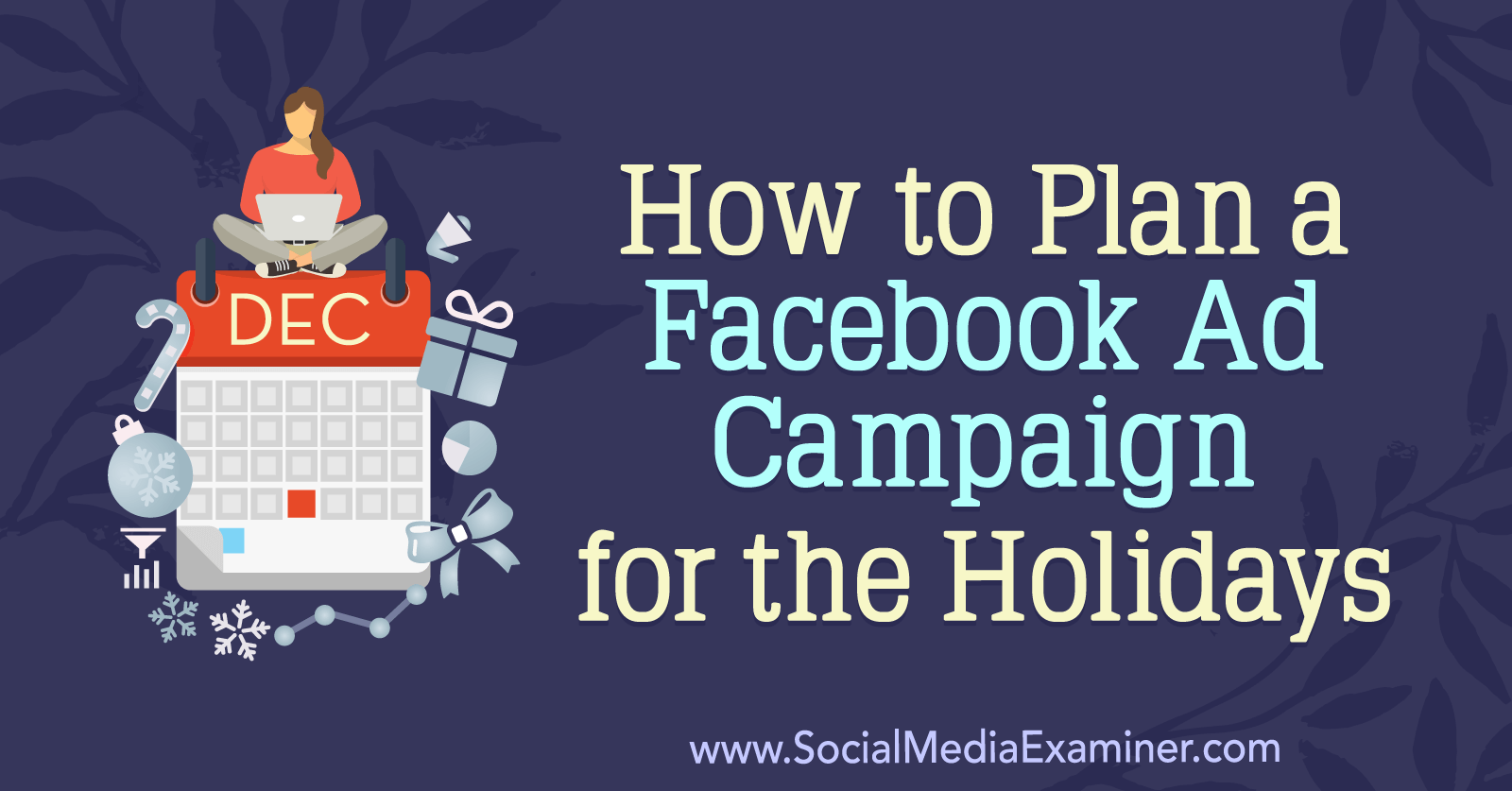
#1: Optimize Your Website for Facebook Ads Traffic
The Facebook pixel is a small piece of code that allows you to track user activity on your website. The pixel is a key part of Facebook advertising because it allows you to track your campaigns, retarget your warmest leads, and find people similar to your buyers.
To make the most of the Facebook pixel, install it as soon as possible to start collecting data from your website visitors. You should also add the event codes to record when specific events take place such as when someone adds a product to their cart or makes a purchase.
Watch this video to learn how to set up the Facebook pixel and standard events on your website.
Optimize Your Website for Shoppers on Mobile
According to Statista, 98.5% of Facebook users access Facebook via a mobile device, so it's important your website is optimized for mobile users. Your site should function as perfectly on a mobile device as it does on desktop.
Considering that your visitors will be on mobile and coming from social media, bear in mind that they may not have a lot of time on their hands. They weren't on social media intending to buy so your ad is a distraction from whatever they were previously doing. Ensuring your website loads quickly is essential because the quicker people can access what you're showing them in your Facebook ad, the less likely they are to leave before completing a purchase.
Google's PageSpeed Insights is a handy free tool to check your website's load speed and mobile performance. Simply enter your URL in the search box and click Analyze to run a test.
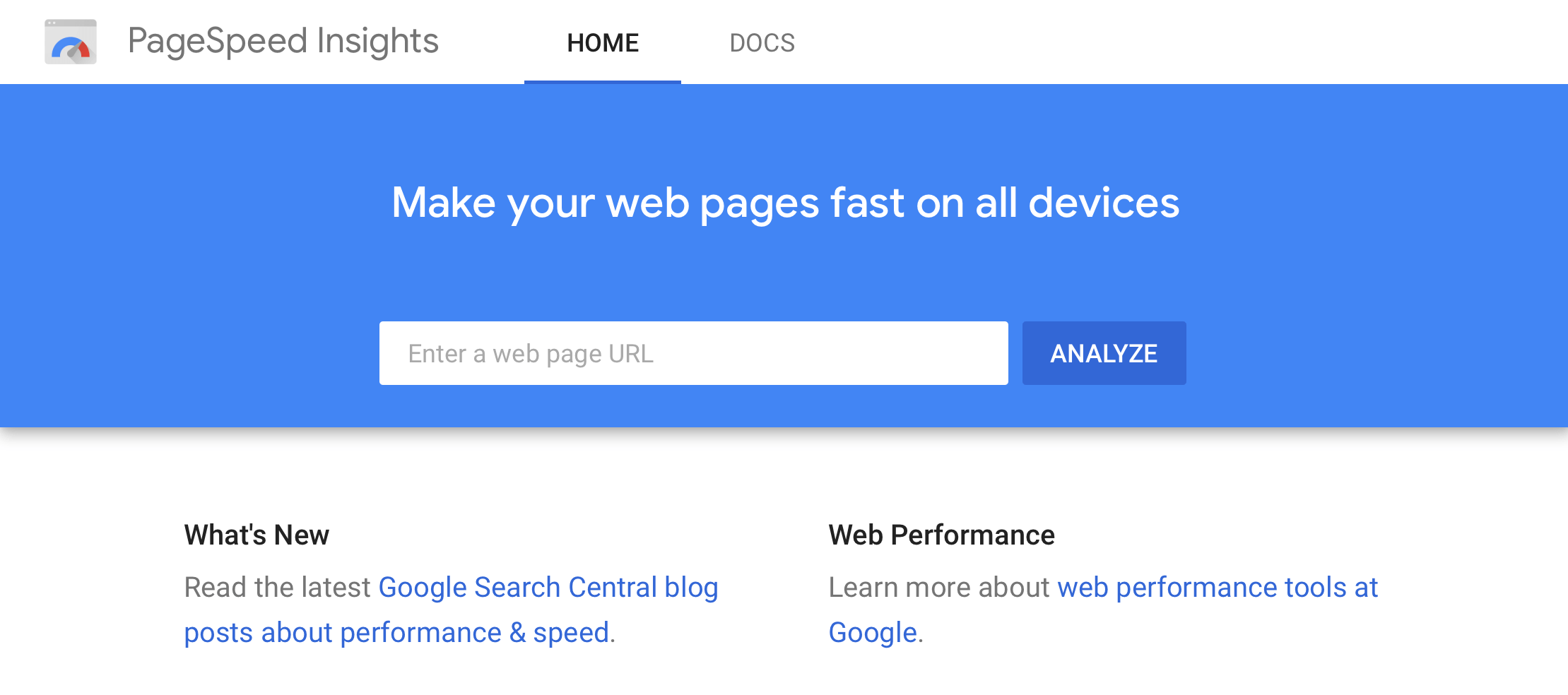
Pro Tip: Facebook is focused on creating a great user experience and this includes the user's experience on your website if they land there from your ad. For this reason, it's a good idea to remove any pop-ups on your landing page. Facebook finds pop-ups negatively impact the user experience, which can reduce your reach and increase your costs.
Pop-ups can also be an unnecessary distraction that might cause people to head back to their news feeds rather than go on to buy from you.
#2: Create or Update Your Facebook Product Catalog
The Facebook Shops platform lets you sell your products through an online store on your Facebook page. To set up a shop, you need to create a Commerce Manager account at facebook.com/commerce_manager. Follow the prompts to set up the type of shop that will work for your business.
For an easy-to-follow walkthrough of the process, read this article on how to set up a Facebook shop to sell your products.
Get World-Class Marketing Training — All Year Long!
Are you facing doubt, uncertainty, or overwhelm? The Social Media Marketing Society can help.
Each month, you’ll receive training from trusted marketing experts, covering everything from AI to organic social marketing. When you join, you’ll also get immediate access to:
- A library of 100+ marketing trainings
- A community of like-minded marketers
- Monthly online community meetups
- Relevant news and trends updates
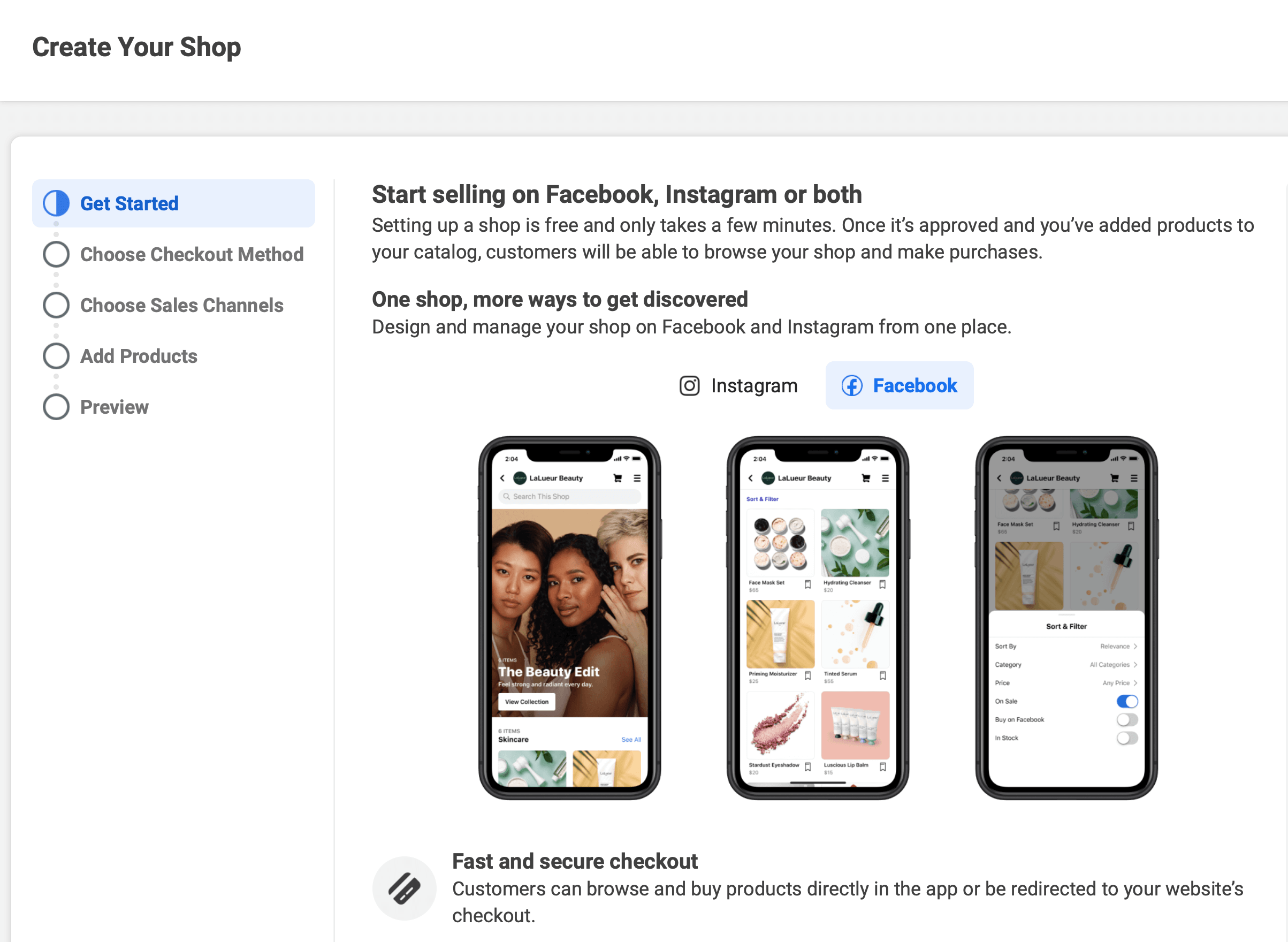
When you're finished setting up your account, the next step is to add your products to your Facebook catalog, including images and prices for individual items.
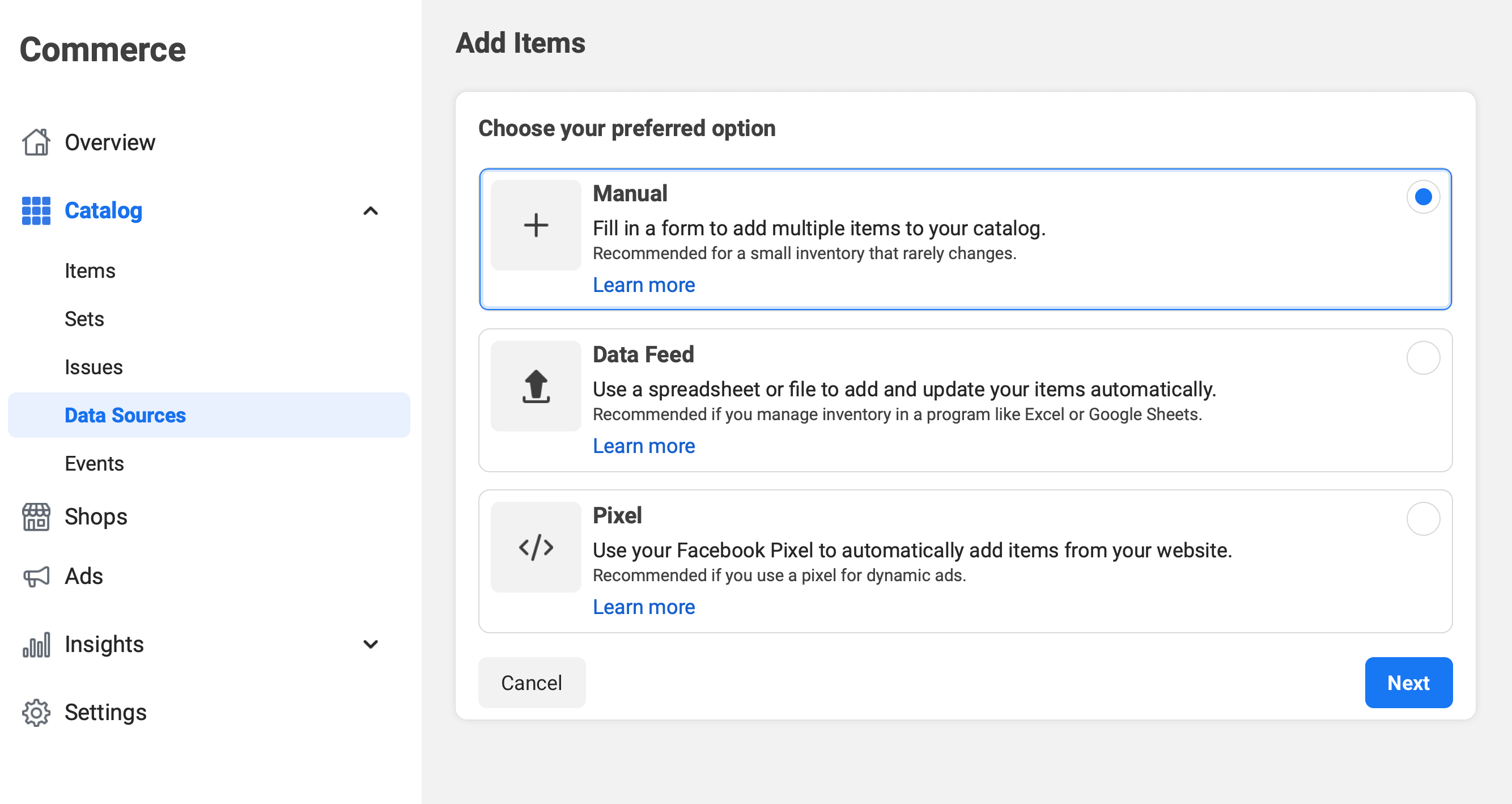
Once linked via your Business Manager, you can use your catalog in various ways with Facebook ads, including dynamic product ads. Dynamic product ads let you retarget people who have visited your website and show them a bespoke ad based on what they looked at on your site. This is why that pair of shoes you fell in love with but couldn't justify buying ends up stalking you on Facebook.
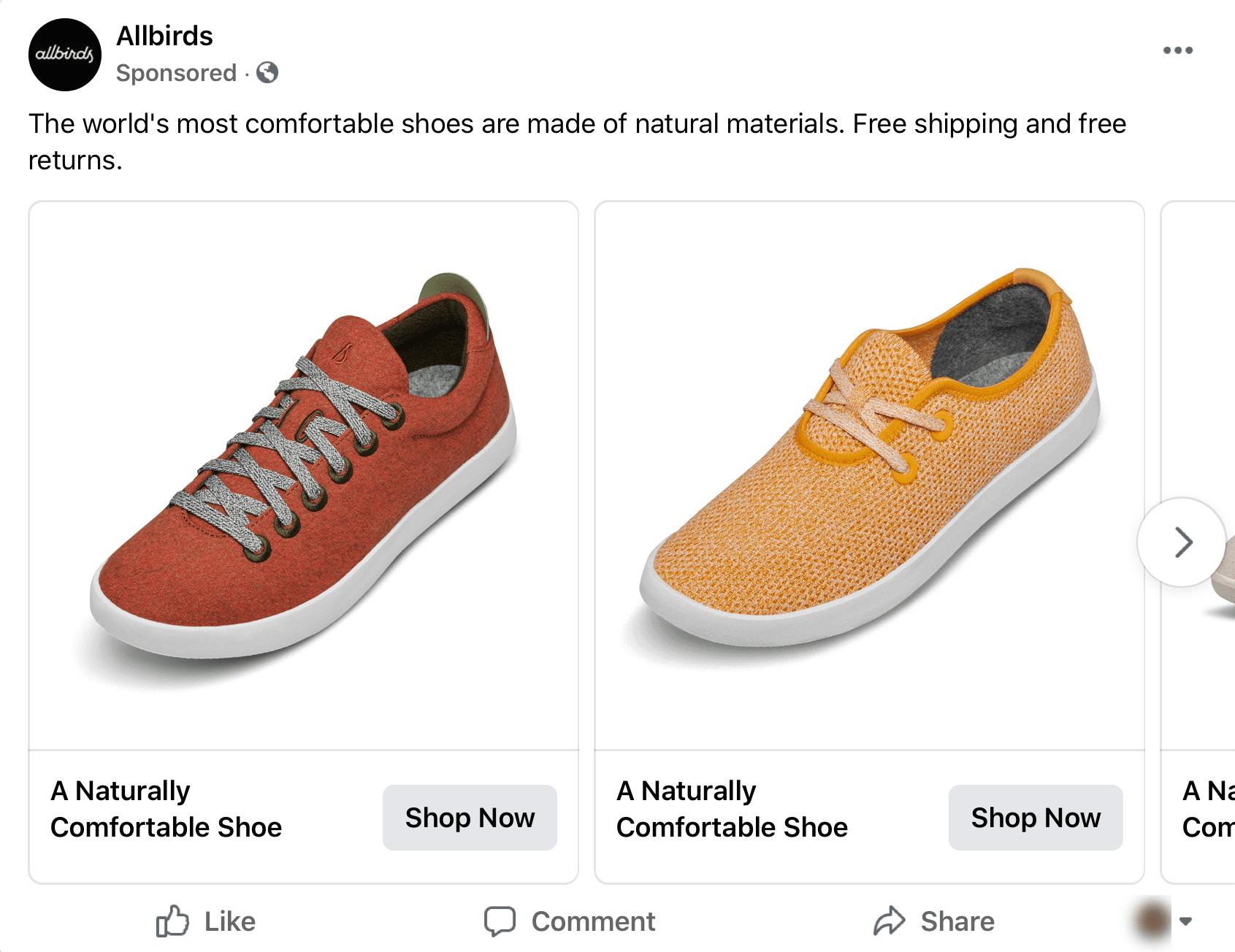
The key benefit of using dynamic product ads is to ensure your audience is reminded of products they've already shown an interest in or related items that they may be likely to buy.
#3: Plan Your Seasonal Facebook Ad Campaigns
When running Facebook ads during the holiday season, you can sometimes get better results when sharing offers at different stages of the funnel rather than serving everyone in your audience the same thing.
For example, if someone visits your website, adds a product to their cart, but doesn't complete the sale, you could start by showing them an ad with an offer of free delivery. If they go back and initiate the checkout process, but again don't buy, you could further tempt them with a 10% discount.
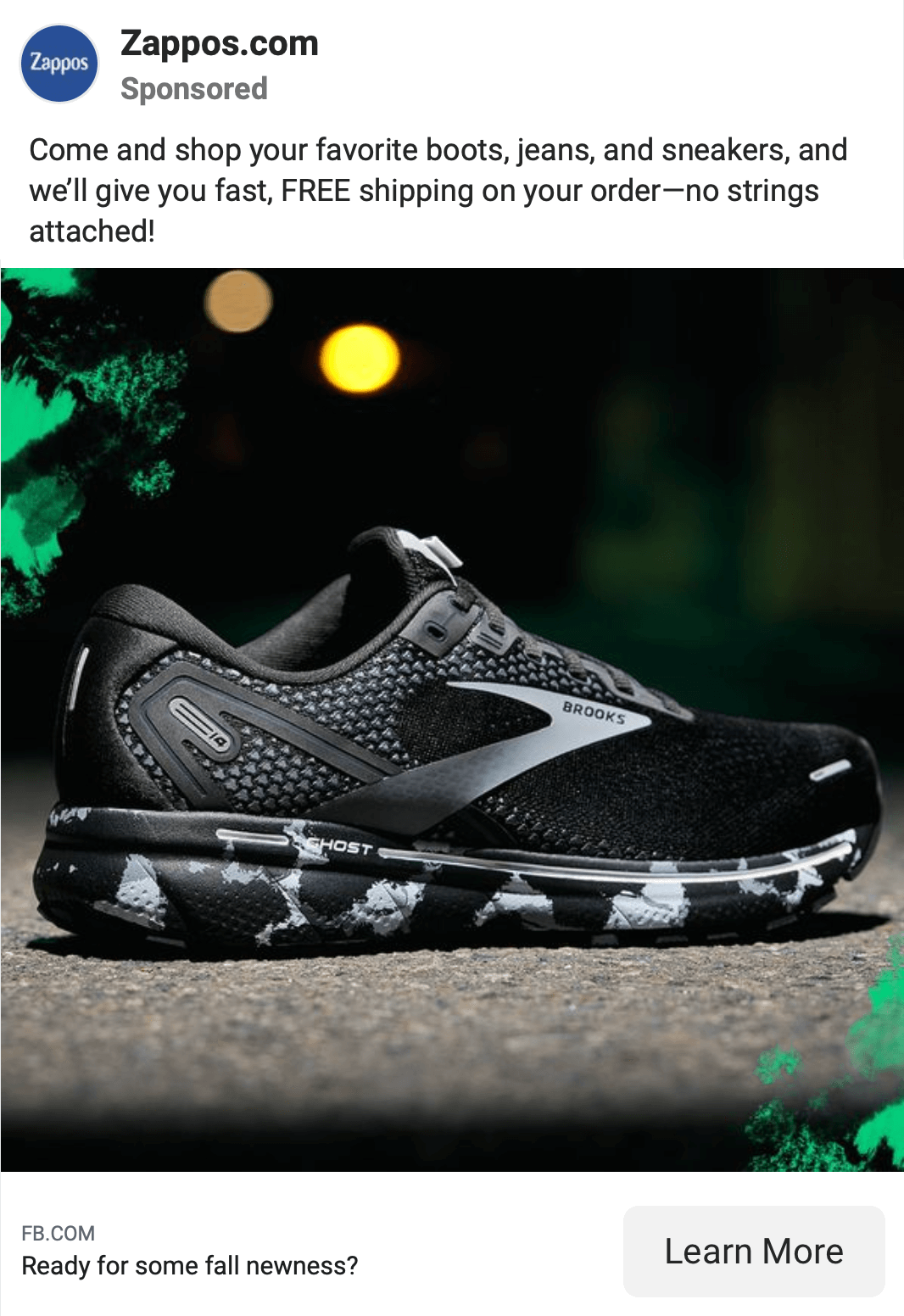
When making offers in your Facebook ads, ensure your exclusions are set up so you're only showing offers at the right stage of the funnel. And always exclude purchasers when you're retargeting to avoid them being upset at having missed out.

Discover Proven Marketing Strategies and Tips
Want to go even deeper with your marketing? Check out the Social Media Marketing Podcast! Publishing weekly since 2012, the Social Media Marketing Podcast helps you navigate the constantly changing marketing jungle, with expert interviews from marketing pros.
But don’t let the name fool you. This show is about a lot more than just social media marketing. With over 600 episodes and millions of downloads each year, this show has been a trusted source for marketers for well over a decade.
Keep in mind that your promotions don't have to include discounts. You can entice people during the holiday season with free gift-wrapping or guaranteed delivery if they order before a certain date. You may already know what would work best for your audience, but if you're unsure, now's the time to ask them. You can also start testing now to see what gets their attention. (Step #4 discusses testing in more detail.)
Key Dates for Planning Seasonal Facebook Ad Campaigns
During Q4, there are numerous holidays worldwide, all of which can be great opportunities for additional promotion with Facebook ads. Remember, the closer you get to a key promotional date, the higher the ad costs are likely to be. So you need to be ready to hit the ground running with the knowledge you gained during your initial testing.
These key 2021 dates are likely to see an increase in seasonal advertising and therefore an increase in costs.
October
31: Halloween
November
4: Diwali
25: Thanksgiving (USA)
26: Black Friday
27: Small Business Saturday (USA)
28: Hannukah
29: Cyber Monday
December
4: Small Business Saturday (UK)
18: Super Saturday (last Saturday before Christmas)
24: Christmas Eve
25: Christmas Day
26: Boxing Day (UK)
31: New Year's Eve
Other Key Business Dates to Keep in Mind
Your own key business dates and promotions might also impact your Facebook ads. Map these out well in advance so you can include them when planning your Facebook ad campaigns. Key dates might include new product launches, restocks, and last order dates for guaranteed delivery or personalization.
Don't leave these decisions until the last minute. You may need to include some of this information in your ad copy or make changes to your catalog if stock isn't available or has been discontinued. There's nothing more annoying to consumers than being shown an ad for something they can't buy.
#4: Test Your Facebook Audiences and Ad Creative
If you start testing now, you'll have a good understanding of what works well for your business and be in a better position to scale in the peak periods. You can use this time to test audiences to understand how best to reach your buyer on Facebook.
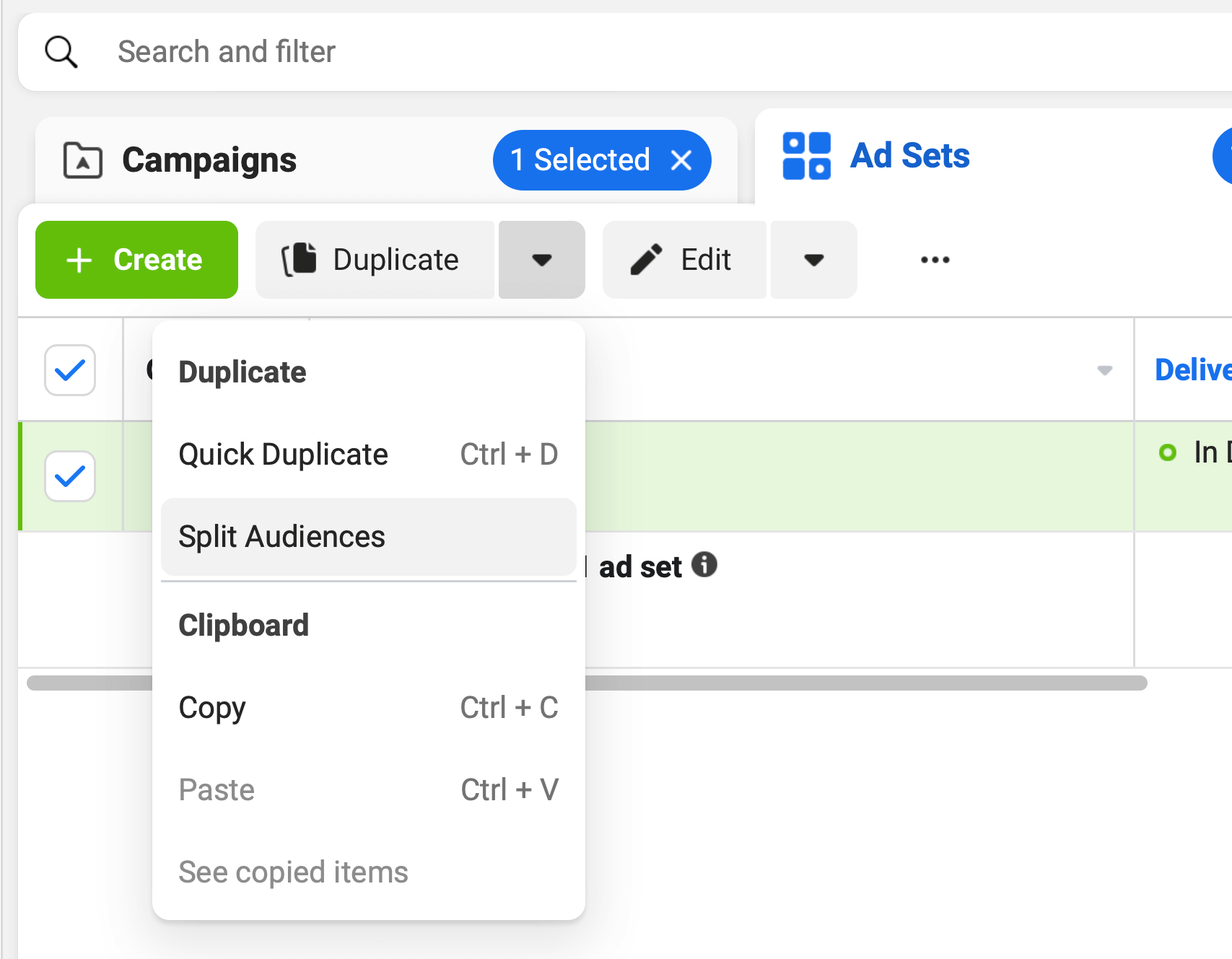
Testing ad creative and copy at this stage may seem tricky because you want to avoid using seasonal ads too early. However, you can start to carry out some broader testing to discover what your audience reacts to so you'll have a better understanding of the types of seasonal ads that might work well. For instance, you could test particular colors, themes, or type of creative. You might discover you get better results with video than still images.
Also investigate what copy your audience reacts best to. For some businesses, short, snappy copy works well, while others may find longer copy more effective, particularly when selling something with a longer consideration period.
As you test, you'll start to understand how long and how much it costs to turn someone into a customer, and how many touchpoints they need before that can happen. The key thing to remember is that it's never too early to start testing.
When you're confident you've optimized ads that will yield the results you're after, schedule your Facebook ad campaigns.
#5: Supplement Paid Efforts With Organic Facebook Content
Don't just rely on Facebook ads this holiday season; your organic content is the secret to their success. Once you've mapped out your key dates and planned any offers, put aside some time to plan your organic content.
Your organic content should help your business stay connected with your existing audience and provide reassurance for new audiences visiting your pages via your Facebook ads. Showing new visitors reviews or testimonials or your product in use can help greatly when someone is deciding whether to make a purchase. User-generated content can work well for this.
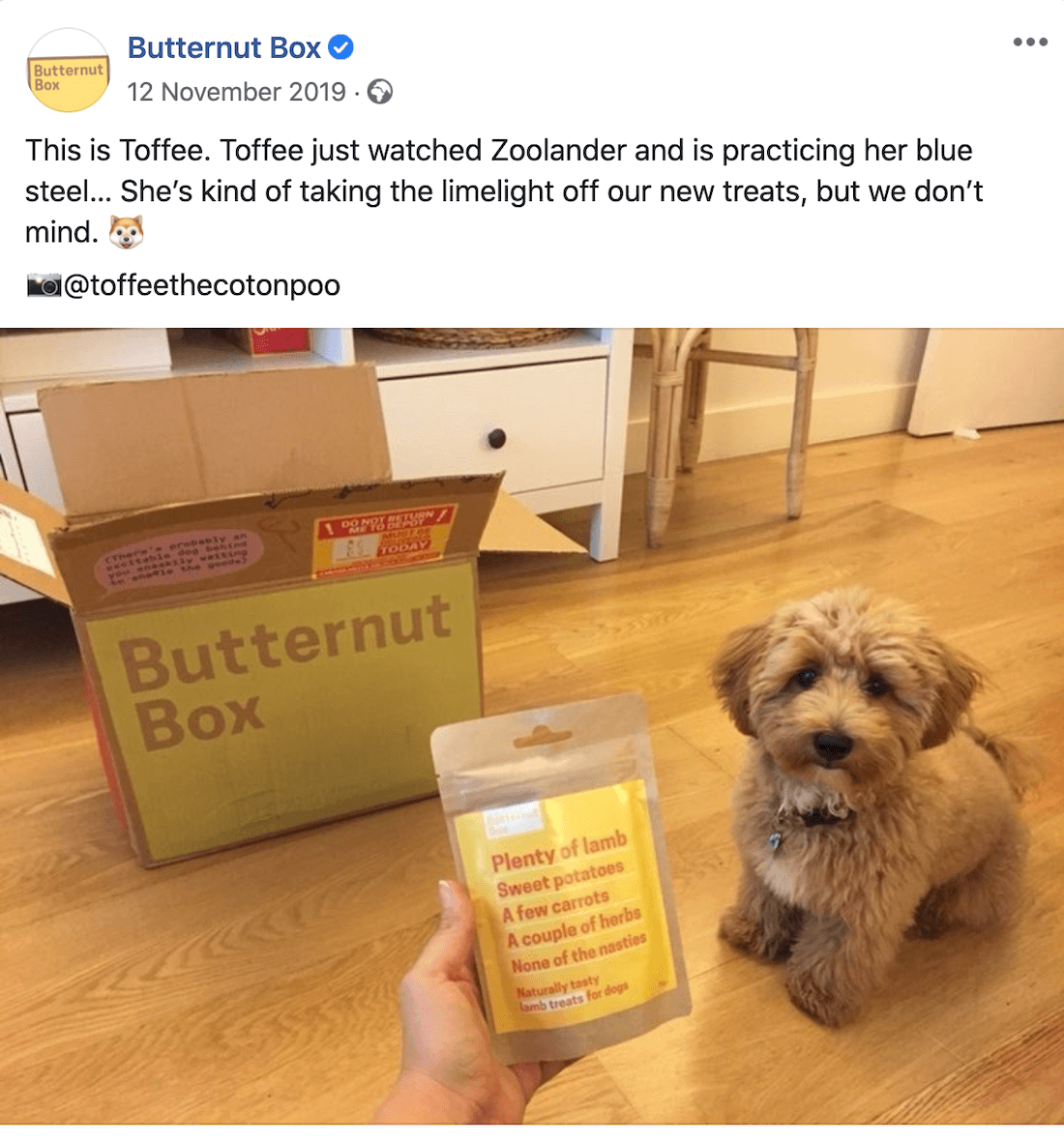
The holiday season is stressful enough without having to figure out what to post on Facebook each day so schedule your organic content in advance. This will ensure you always have good content going out, even when you need to prioritize other areas of your business or take time out to spend with family.
Conclusion
Running a business during the holiday season can be challenging, but with good preparation, your Facebook advertising will make it easier, rather than harder, to reach your goals.
Start by optimizing your website, carrying out testing, and planning all of your key dates and offers. Once your Facebook campaigns are up and running and you see what's working well, you'll be in the best position to optimize and scale your campaigns.
Get More Advice on Facebook Ads
- Improve your Facebook ad data tracking.
- Create, test, and qualify cold Facebook ads audiences.
- Choose the right Facebook campaign objective to achieve your goal.
Attention Agency Owners, Brand Marketers, and Consultants

Introducing the Marketing Agency Show–our newest podcast designed to explore the struggles of agency marketers.
Join show host and agency owner, Brooke Sellas, as she interviews agency marketers and digs deep into their biggest challenges. Explore topics like navigating rough economic times, leveraging AI, service diversification, client acquisition, and much more.
Just pull up your favorite podcast app, search for Marketing Agency Show and start listening. Or click the button below for more information.

